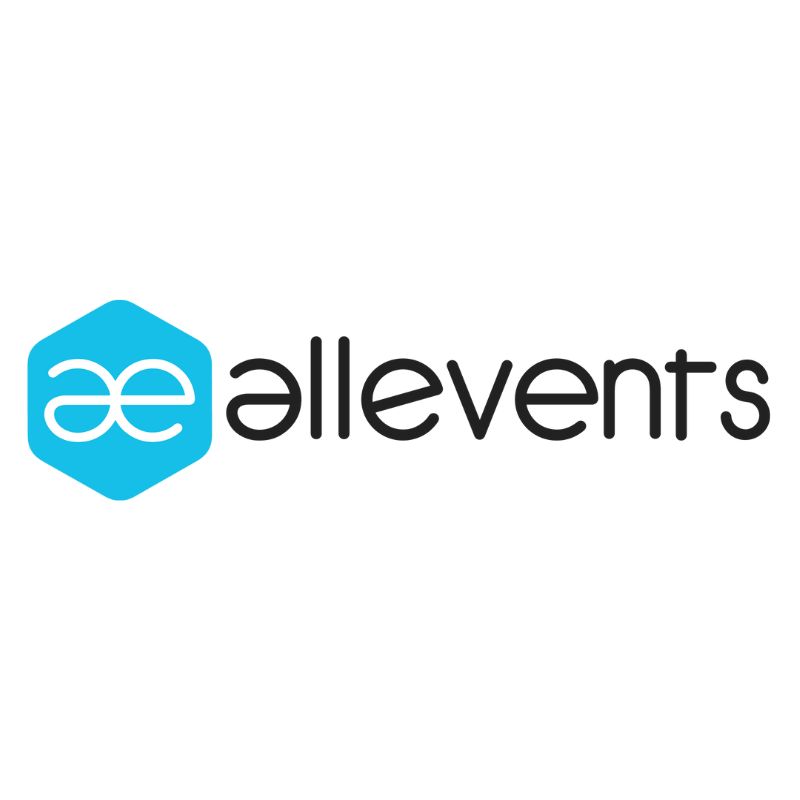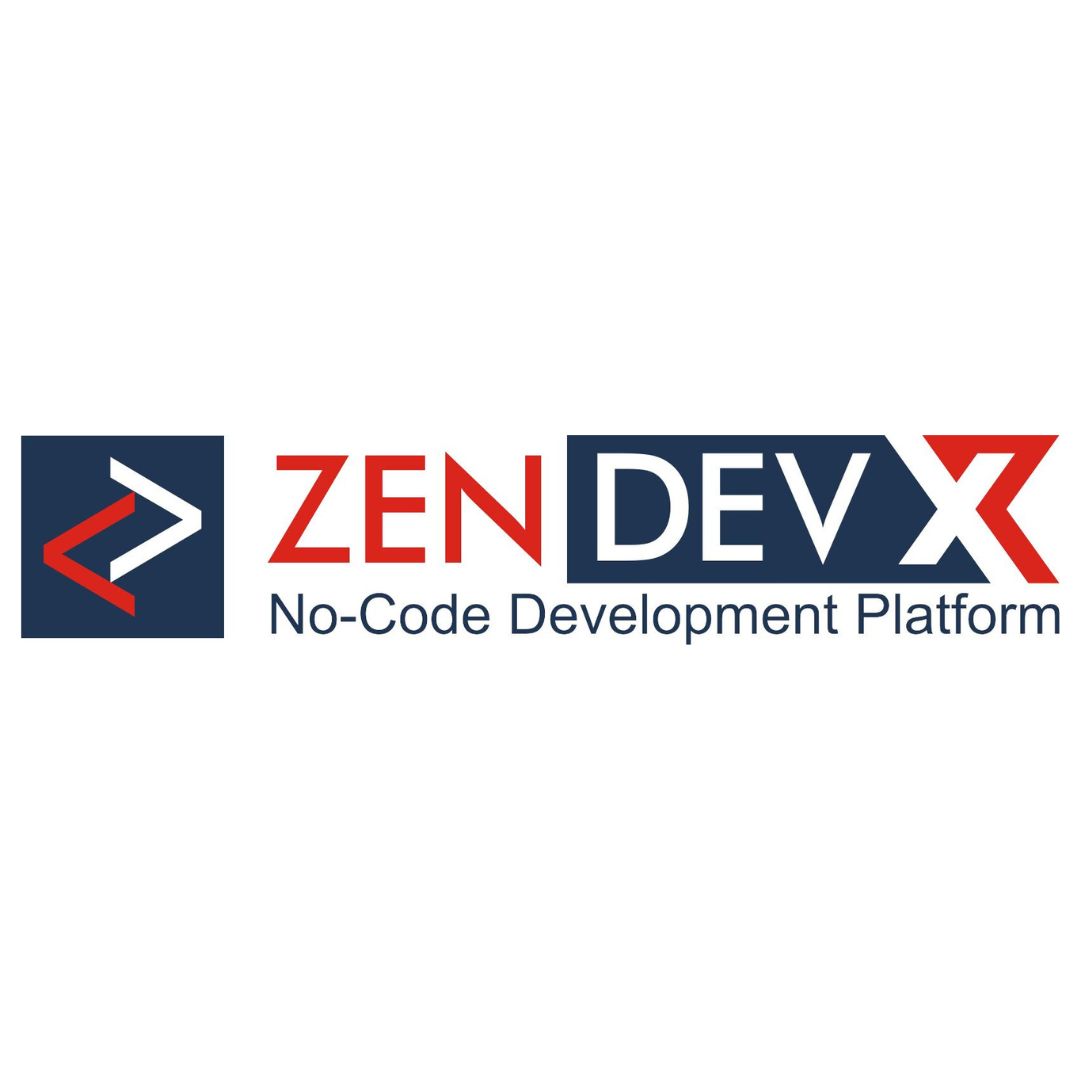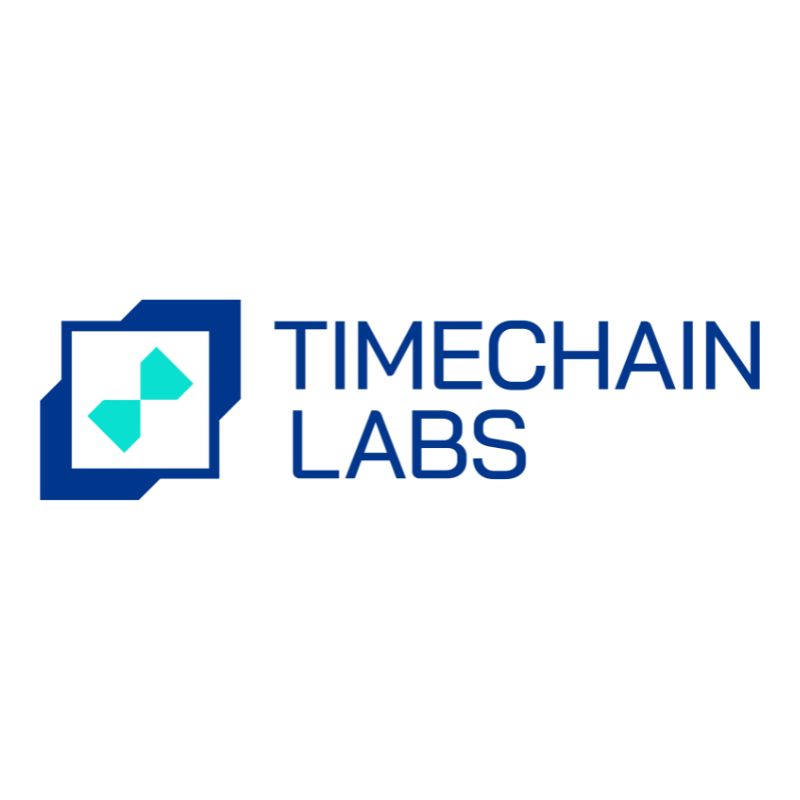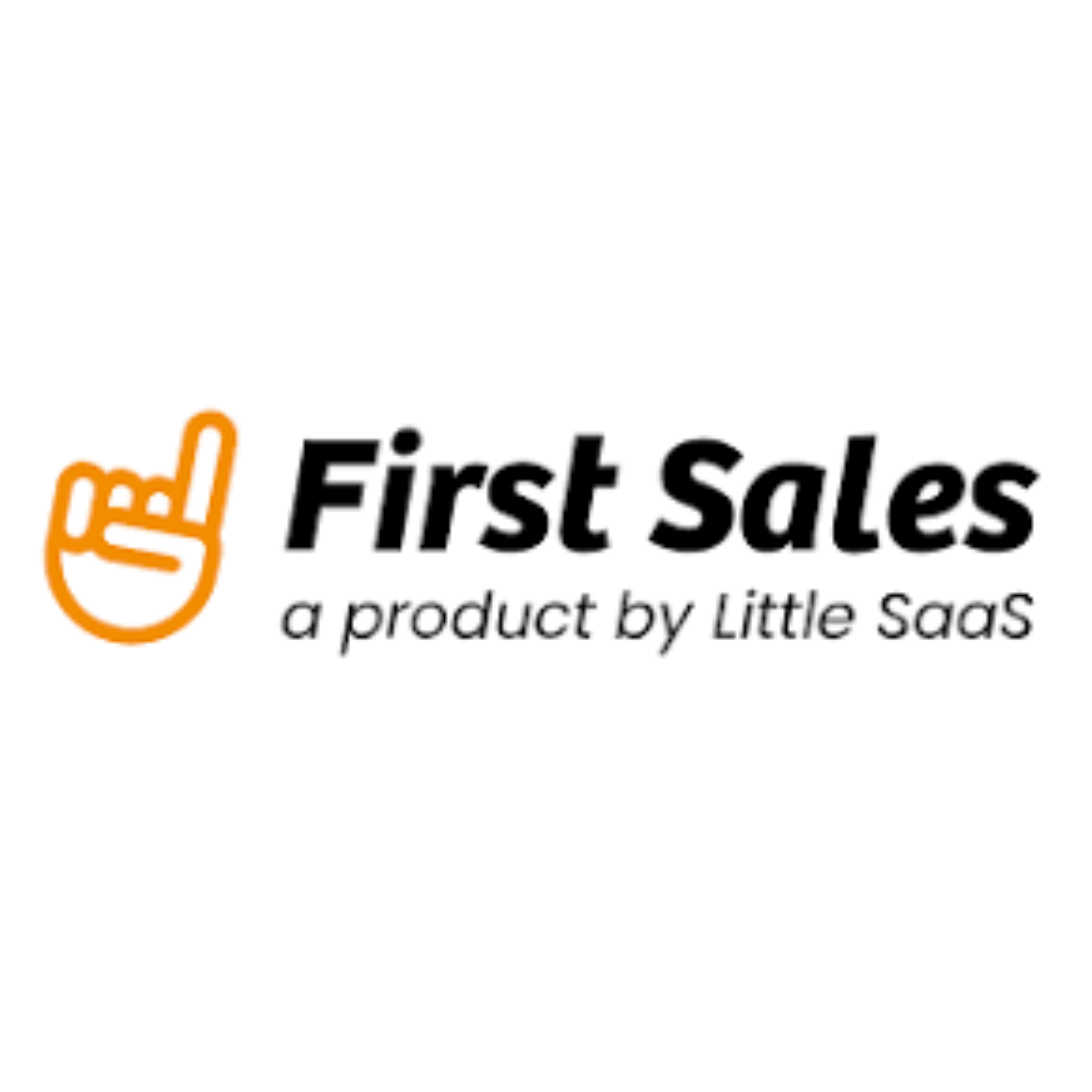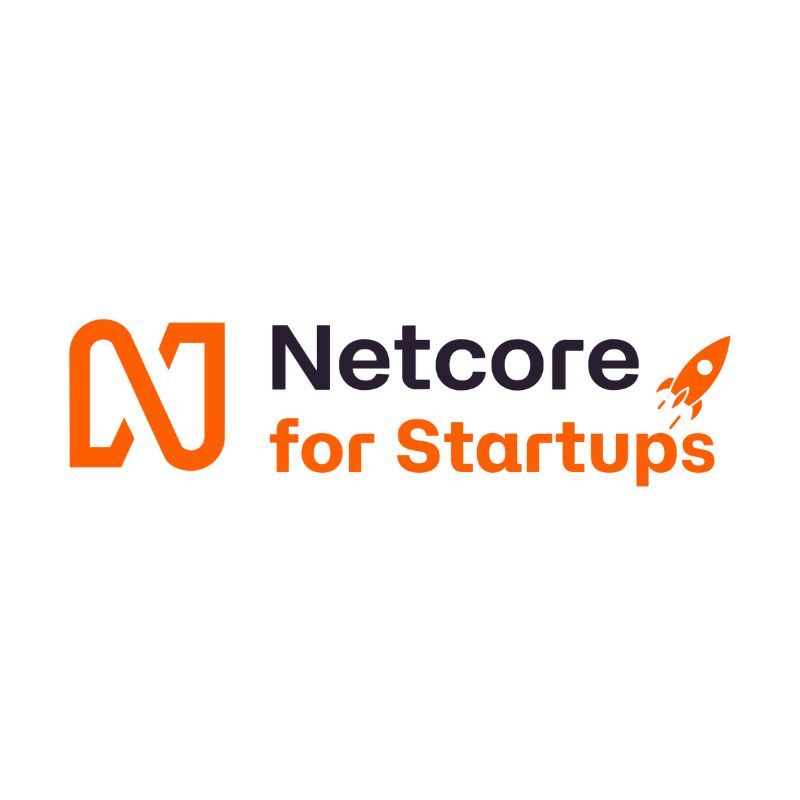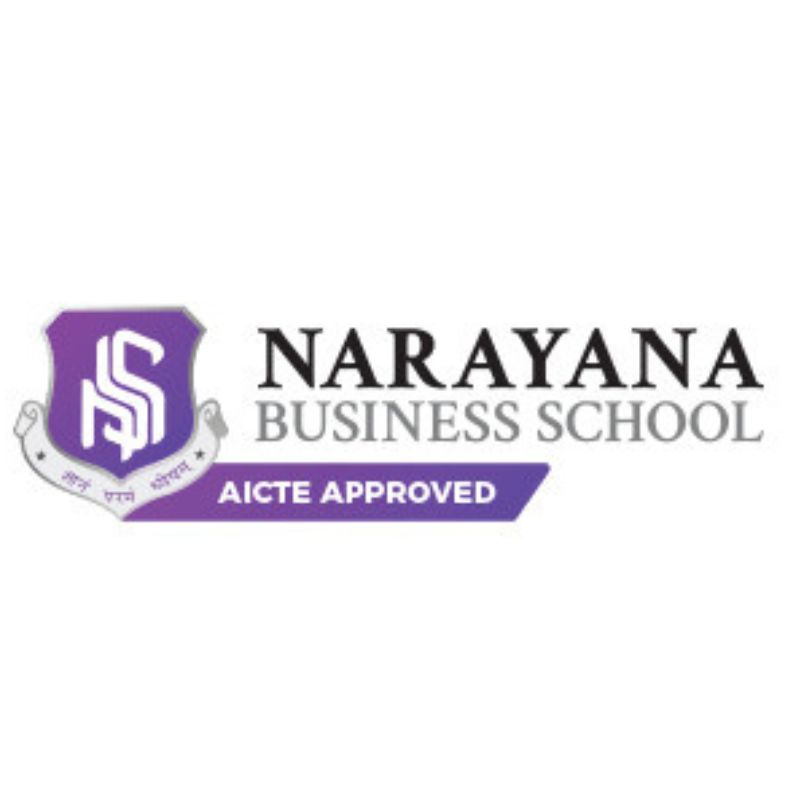Jatin: This is the new series that we are starting. We are calling it spouse entrepreneurs. I'm Jatin I'm one of the co-founder of eChai Network. So in this spouse series idea is to invite amazing founder couples who are building ventures together, or building separate ventures to come and share their experiences.
so this will just get directly get started. So this is the recording of our first episode, with Minal Desai and Abhishek Desai, they have an interesting background because both of them run their separate ventures. And with the new venture fund that Minal is starting, Abhishek is also professionally involved. so it will be very interesting to know their views about how they are building it. And now that working together,
so Minal and Abhishek, thank you so much for joining for this first episode.
[00:00:50] **Jatin:** [00:00:50] let's get started with some of the basic stuff. And then we'll get to the discussion. When did you meet for the first time? And when did you think about getting married?
Minal: I think that Abhi should answer.
Abhishek: When did we meet first time? Yes. okay. Very complicated story, but the, I would say we met, to a common family friend. For the first time. So, you know, like, it was way back when probably I was just like 19, 20 years old. So, you know, at that time, when a common family friend kind of introduced us because he knew both of our families.
[00:01:26] And then, you know, since then our journey has started, after a couple of years, probably, you know, we got engaged. So I was in fifth semester of college. and she was in second year, right? When, when we got engaged.
So, you know, at least we married when we were like, legally, you know, legal age. So, you know, everything is legal, but yeah, we had, we got married very early. I was, it was 2004. So, you know, I started my first venture, the DigiCopr. in early [00:02:00] 2004, for, January and in December of the same year, we got married.
Jatin: Okay. Well, I didn't manage, I didn't influence directly, you know, starting a business and not taking care of any jobs anyway, as ,
Abhishek: it did actually not married, but, the relationship definitely had an impact. So, you know, I, after Nirma, so I did computer engineering for minimum, and I got like, like you, right?
Just one, one batch. a senior. So I got selected in Patni computers from campus placement. So I, I had met like my first job was with Putney in Mumbai. So I stayed there for about four months, but then, you know, I got really homesick actually. so, you know, I really like, being close to friends, family, especially.
So I came back, I started another job in Ahmedabad. With a company called systems plus, maybe, you know, like some of you might have heard of it. it was a great company at that time. I'm not sure how they are doing right now, but a, a good job. the only thing was that I was not enjoying the job and, you know, like one thing led to the other and, we were, being like, given an [00:03:00] opportunity when I say V myself and my friends were there in Ahmedabad with me. We were given an opportunity to work on a project together. Right. Basically build a project together. So, you know, we all started, programming, during the night and having day job and everything. And that's how the journey of started.
This is late 2003. I'm talking about. So after doing this for about couple of months, like, you know, working day and night, we, felt that, you know, this is not working and it's not sustainable.
Right. So we have to choose one either we can choose a job or we can choose business. Okay. So finally we all quit our day jobs and started working on this project, which we got full-time and that's how the birth of DigiCORE happened early 2004. So, and late 2004, I got married. So as I said, the marriage didn't have an influence on business, but definitely our relationship.
Minal: Yeah. So I have multiple vendors and multiple stories, and I can tell you stories, But to begin with, we were engaged when I was hardly 19 [00:04:00] and I finished my bachelor's year, went for master's abroad. And one of the reasons just away I'll beat you is to come back from Mumbai to the birth. One of the reasons I came back from abroad was because he was here and you don't be looking forward.
The romance was alive back then, so we can, I can came back. And, well, did you go to happen before the manager? I think in great part, it also happened because as a. As individuals. And also in terms of family background, we were more drawn towards entrepreneurship towards having our own ventures, as opposed to kind of, working, having a job and all that.
I, then I came back. I was, of course looking forward to my marriage. And other than that, I joined my own family's, enterprise, which was into school. So my family was into school. So I joined one of the schools and all that. And since then have been working with schools often on have tried a lot of other things, but majorly speaking, I've been with schools and education.
Jatin: So that is like mid two thousands. you were,
Minal: so I completed my masters in 2003, 2004. I took a break kind of second into the. And then since 2005, I've been working with schools.
Jatin: So you are building our education business and building your software consulting business. So fast forward 2020, what is the thing with your businesses now?
Abhishek: I am I, I, so I am on, like, my second venture officially, which is , which is a B2C product. specifically dealing into cricket. So I started curriculum back in 2016 and that also postponed from my only. So as part of digital, Arpino just the way I was not happy with my job. And started, did you call similarly?
I was also not happy, with services business, and you know, always wanted to work on, you know, like our own ideas and our own IP. Right. So. like no, all the time I used to come up with ideas and, you know, like throws those ideas in front of my colleagues. three of my classmates, with whom I started, did you call?
And, you know, we, worked on a lot of ideas in 2007, eight, 11, even six, [00:06:00] right. But most of the ideas, like 10 of 10 ideas, I have even written a blog post, probably. No, you can also link to that post along with this video, just to give some context, but you know, like at least 10 ideas we worked on and most of the ideas, we could not make them bigger.
Or, or we fail miserably in like many of them, the reason being that, you know, we were not focused. We always treated them as side projects or side projects because the chicken was the main cash cow. Right. We are getting, and you know, we are putting the same cash on the other businesses and obviously.
The new businesses will not give you a written immediately, specifically if it's a product based business. But so when I, when we, thought of doing it again, in 2016, we decided to change one thing that, you know, at least one of us will come, come out of digital ops day-to-day operations. And whatever we do, we'll do it.
Full-time right. And, preferably we'll also raise outside funding if we get so that, you know, we, we are in a way indirectly, also pressurized or obligated to our investors as well. Right. So then, you know, will not again, lose the focus and that's what happened actually. So I [00:07:00] started working on like three ideas, early 2016, and one of the ideas was quick heroes.
So mid 2016, I pitched the idea in front of my friends and family, including meaner and my two brothers in law, my couple of friends, and they all agreed to invest in this venture. So that's how I was able to raise a small amount of seed money. and we started Greek heroes as a separate company and fast forward to 2020.
we are right now, 31 people, in, in, in Greek heroes. It's a separate company we have after that, we also raised multiple rounds of funding from angel investors. And in terms of traction, we have more than like 5 million, 5.5 million user base. And more than 700,000 matches have been scored on three kilos.
Jatin:** [00:07:44] Well, so, so, I mean, what is your fast forward story from 2005 to 2020,
Minal:** [00:07:50] lots of swells and not send downs and all that. But presently, we, if I talk about what I'm working on, so I'm working with one of the other schools, not the one that I began with. I'm working with an [00:08:00] international school. It's a, it's an eight year old startup, I would say.
And, It is relatively pretty much settled. So when that is going on, I am now looking at a of ventures, the Genesis of which you began the, when I invested in obese company. So while that, at that point of time, in 2016, it was more like, okay, you're trying something and let me just invest. Let's see what comes out of it and all that.
my name with it. So, that's how I, it began. But since then, what has been interesting, I think is that I've been following the journey of a startup, something that. So as an outsider, because I mean, I've seen tech in both ways inside and out. So then I would say good text me seems to sprawl one fine day.
It feels like Janet said this become became this. This became that, et cetera, et cetera. It is so not true. And, with, with three kiddos, I got to see, what is the journey? [00:09:00] How does it really scale? What are the things right from understanding the difference between say angel fund angel investment, to what a series a B two, the whole idea of dilution.
I remember the first time she told me that, you know, you've invested X amount and now because new round is coming, it would be that you didn't
let her be very traditional business mindset. So the whole idea that. That you order steak gets diluted was extremely new for me, but I always know, I understand it in much better debt. Yeah. This fandom, it has given us a lot of time to think about what exactly do we want to do as well. So I work with my, my brother he's in my family and on that.
So one of the things we were working on and formally, so is Amara ventures where we are investing in C in seed state startups. And if you've already made a good. Five to six investments, sofa in a variety of spaces and all that. And we've spent the last six [00:10:00] months, totally and completely immersing ourselves in this and kind of educating ourselves in what is it to be an angel investor.
[00:10:07] And that is what 2020 looks like.
Jatin:** [00:10:10] Correct. So just adding onto what you mentioned, so you invested in, which X business, and then you thought, okay, this is something that you can pursue.
Minal:** [00:10:19] Yeah.
Jatin:** [00:10:24] so, so, so you must have this RW invested in other startups. So what was the difference of evolution you had?
Minal:** [00:10:35] honestly, we didn't evaluate was family. So he came up with this idea and as he mentioned, it was his idea. So by then he had come up with so many ideas,
[00:10:48] but a very sensible, Move in, in multiple ways. One is he as he and his friends, they play cricket very regularly. So it was a problem that they faced [00:11:00] very regularly and I would always see them fussing about it, escape, blah, blah, et cetera. I know. I could see that about not having authentic data and all that.
[00:11:12] So the problem was experienced. First time I was, I had witnessed he had experienced, but I had witnessed it. And then when he suggested that having an app around that and kind of, you know, making the local people, he doesn't know that. I was sold on the idea also, because by then I'd read a couple of books which spoke about how India needs its own solutions.
[00:11:31] So trying this of that kind of doesn't make sense because the Google of the world is going to be Google of India. You can't build a Google for India, but India has its base Tippit problems, which need to be solved. And that framework, I thought quickie does fit in very well because India is probably only one of the countries which plays this level of the league cricket.
[00:11:50] But this Gusto, you don't have that. So honestly, a creaky dose was a no-brainer. It wasn't really . So I'll be [00:12:00] texting formerly. He put it up us all and he put up this PPT sort of a thing. And he's like,
[00:12:12] take a ticket because we really didn't understand anything of that sort. But him also, like he was, he had tried a lot of ventures. Cliquey Rose was probably the only one that took off to this level. So for him also, he made a lot of trials and errors and kind of worked it out, like compare coming back to your question about the difference in evaluating curriculum versus others.
[00:12:34]maybe, Not valued at the same level, but because I saw what is possible in a startup and it has bloomed so well that I was inspired to invest in others. So now when I see a new startup, I look at it this way. I look at that small little pitch deck. I look at that simple, question that I see, I I'm able to, I'm able to,
[00:12:55] **Jatin:** [00:12:55] well,
[00:12:59] **Minal:** [00:12:59] I actually ended up [00:13:00] seeing give it for this group. These interior investor, we invested in a company which had the immediate college drop out, not drop out, but college grads and. Fresh college grad and all that. And when I saw them, I couldn't help, but think of a bee and his friends when they were out of college and starting to, maybe I just ended up investing to be emotional.
Jatin:** [00:13:24] Awesome. I wish, I mean, I'll explain about the potential aggregators wonderfully and how would you explain the .
Minal:** [00:13:31] Good luck.
Abhishek:** [00:13:35] no, I think, you know, just mean, say it actually, I will, I will say slightly build up on it. again, you know, India needs its own solutions. And, when solutions are required, there will also be like capital will also be required, right? like in smaller amounts, in bigger amounts in moderate amounts, but capital will be required.
[00:13:53] Right. So I think, just the way, there is, there is a lot of opportunity that a lot of opportunities, for building a specific solution. [00:14:00] I think also there are also a lot of opportunities for building India specific, funds. Right? So I think, if you just look at it from that macro level, I think Amara ventures definitely as a grid, future, you know, definitely a focus is required.
[00:14:14] You know, you cannot, there are so many things you can do, so obviously know what is the ticket size you are going to, basically you have to be very, very disciplined, right? About your ticket size about your approach, about the kind of companies you will find, right about the kind of founders you will find.
[00:14:28] So, you know, they, and I think what a bit of last six months, we know, like they have done a pretty great job in terms of at least coming on the same bivalent, between amongst themselves, right. There are three main partners. So they, they now know that they want to invest in, in the underdogs. Of, the Indian startup landscape, basically people who are not very well represented, basically somebody who is not from ID or somebody who's not from my aims, you know, let's say this is like just one definition, nothing against, those people.
[00:14:56] I mean, like they are brilliant ones and, you know, if we get an opportunity. [00:15:00] Probably we'll also jump on it, but even if not, then, you know, the other should not be ignored. So it's like this, there are also like few more, hyper, criteria of investment. So I think if we, if our ventures remain focused and disciplined in their approach of investing and at the same time, it is extremely important to have a long-term view, right.
[00:15:20] Because you know, you are not going to see anything, like, you know, less than five years. So if you, if you don't have a long-term view of at least five to 10 years, right. Then I think, definitely it has a great day in jail.
Jatin:** [00:15:32] Yours is a very unique situation. questions to us, but I'll just do it fast. It's we're in the flashback thing before you invest, before you invested in Greek heroes or, you, you were running appreciate, you were running Digicomp successfully and mineral, you were running your education business schools very successfully. So at that point in time where you used to consult each other for each other's problems or [00:16:00] any specific moments you can share.
[00:16:05] What do you mean television? How to do that in his software business? Like any specific moments you can tell?
Minal:** [00:16:10] Okay. So I think on that front, I'll be, has been the mentor and I have been the mentee and I think every evening, I would say that I've run into small little problems also. Not to be stereotyping, but women have a tendency to talk more, which I think will be visible from the video by the end of it.
[00:16:27] So, I would always go home and David , blah, blah, blah, et cetera, et cetera. And then he in his Zen calm position would. Oh, okay. And then did you go to a library, pick up a book, give it to me and say that. Okay. How about reading this and kind of understanding it, how about trying this and looking at it, doing, doing, he has educated me to a great, great sense.
[00:16:48] And I think it has helped me shape the schools in a far different way than what would have happened otherwise. And, coming from him, I think he will share, about what our conversations look [00:17:00] like. But one of the things that I've learned greatly from him and shared a lot of problems with him have always been people problems.
[00:17:07] So kind of, you know, working with the workforce, et cetera, et cetera. How do you. How do you change mindsets, setting culture, et cetera. So, unfortunately in the field of education, there is very little literature when it comes to education management or when it comes to people management and all that.
[00:17:22] You find a lot about curriculum. You'll find a lot about teachers, about children, but you will find very little about people management. So in many ways I had to import a lot of my understanding from the tech industry through a B into this. So, yeah, that's been my experience. Awesome.
Abhishek:** [00:17:39] Yeah. So, no, definitely.
[00:17:41]you know, like, as she said, our coalitions have primarily being, you know, how to manage team and how to manage teachers and, you know, those people's specific problems. whatever little I learned from DiGiCo running DiGiCo. So even like from our earlier days, we were very inspired by a few companies, like, 37 signals, which is now known as base camp.
[00:17:59]right. [00:18:00] Even for Creek. which is, who are the creator of Trello, you know, like probably people might know them and like, no couple of more companies now, these companies, what excellent. Like, no, in terms of, human resources or in terms of people management or in terms of the way the founders, ran those companies.
[00:18:17] Right. And, you know, we were really inspired, with the transparency and, you know, the, the, the, you know, readiness. With the way their vendor companies. And, you know, we tried to him, like copy those ideas in running DigiCORE. So from that perspective, you know, we also made a lot of mistakes. I'm not saying, you know, everything is hunky-dory, but we made a lot of mistakes and, you know, we learned from them.
[00:18:35] But at the end of the day, if you're, if, if somebody asks me, I'm very happy, the way we have run DigiCORE and, I always try to tell you like those ideas, which you have implemented in G-code. I probably know, like suggests not just to menial, but anybody, you know, like, whom I'm talking about this.
[00:18:51] I always suggest that, you know, why not try this? Why not try this, those ideas. And because, you know, as you rightly say, tech industry has been kind of pioneer [00:19:00] in, making a better workplace, right? If you compare it to any other traditional industry, Those ideas are always unique, in those circumstances.
[00:19:10] So for example, let's say the idea of having celery, let there's a company called buffer. Now they are known for transparency, right? So they have sensibility of their founders co-founders and everybody in an Excel sheet, in a Google sheet and it is publicly posted. So anyone can go open that sheet and know that who's making how much money right now.
[00:19:27] It's a radical idea. Correct? Right. Not every company can do it. But let's say if you put this idea in any industry, it will be very, very unique for that industry. If they can do it or not, it's a separate story. Right. But at least they will have something new to explore. So in all our conversation have been, you know, such, such new exploration, obviously not all ideas, which I have.
[00:19:47] I have shared her work. Right. sometimes you, you also have to look at that. You know, you are also looking at India, you are also looking at people who are worked in a traditional industry for a long, long time. So not everything works, but whatever, you know, like later we can get [00:20:00] out of those ideas, you know, we should, try to implement and try to make, probably have a better, better, like basically a better place.
[00:20:07] Great. And if I have to tell you that what I have learned from menial, you know, like, she has been to kind, by saying that, you know, I have been the mentor and all, but it's, it's not true. The other thing is that whatever English I can speak right now, for example, starting from that, whatever English I can write or, you know, I think, these two major things, I can, you know, completely, is because of menial only, I would say, you know, otherwise I would have never been pushed to improve my speaking skills or writing skills or, you know, for that matter, interacting with people or public speaking, everything.
[00:20:40] So, I would, give a lot of credit to me, for those things. Yep.
[00:20:45] **Minal:** [00:20:45] Yeah, just some of the science
Jatin:** [00:20:58] and, like this, this is a question which [00:21:00] is central premise of this conversation, and you must have been asked about work life balance. So you talk about business and you have a family. And you're more to, so probably individually when you speak, you will be in the same zone, but when you are talking about business and there are families, so how do you manage or what is your, thought, on work-life balance?
[00:21:19]**Minal:** [00:21:19] work is life. So honestly, there is, there we've never faced such problems in terms of work-life balance. I used to feel really stressed out when, when my kids were young. So I have, we have two kids and both are both are only two years apart. So till the time they grew up to be four or five, like look, the little stressful that is because of the kids and their age was different than on that.
[00:21:39] But thankfully we used to live with her, with my in-laws and I'll be spirits and all that. So kind of was taken care of. So I was also in a particular setting, that worked out that said, since 2015, 16, that we moved out and give it to living by ourselves. honestly it hasn't been as much of a problem [00:22:00] on the contract.
[00:22:02] I got so used to it that, in case we are home for a longer point of time, or if we don't go, they come up and ask us
[00:22:14] et cetera. So that has been one case. Secondly, work-life balance is not a problem. If you know, what is it? That's important. So if you try to attend each and every social party, if you try to go to every new. Place that comes up and exhibitions and kind of meaningless stuff that you ended up. Then I think work-life balance becomes a problem.
[00:22:35]in our case, we've sorted it out to a great extent by default that unless it is absolutely necessary, our family also doesn't invite us. No abdominal . Can we don't even get half the invitations I tend to get we've been left out or like it has worked for us. And, yeah, other than that, he's either an extremely helpful spouse in terms of everything.
[00:22:56] So there are these very specific gender roles [00:23:00] about talking about, you know, this is only by him or that or anything. So I've, I work longer into nights. Then he has attained. I've managed a lot of weekends when he was not available.
[00:23:13] **Abhishek:** [00:23:13] I think Emily, yeah. Family has a, I should give a lot of, or our respective families.
[00:23:19]as she said that, you know, like, I have been blessed, at least that, you know, my family only invites me to functions, which are absolutely necessary for me. So that way, you know, there it is given that, you know,
[00:23:36] so from that perspective, I have been really blessed. So that has definitely helped. Because like no running DigiCORE was, you know, like a very, very full-time job, I must say. But at the same time, because we were highly influenced by some of the philosophies, which I just mentioned, you know, we were also very off not burning ourselves late or not.
[00:23:56]for example, working on every weekend possible because he, at the end of the day, if [00:24:00] you think about it, there is no into this, right. For example, you worked on this editors and the next era descended, then what it is never going to end. If you keep looking like that. So that way, you know, from earlier days of DigiCORE, we have tried to make our life, at least like most, slightly more disciplined.
[00:24:14] For example, we started giving away weekends off, very early in the ops, tenure, probably we were like one of the very first companies and I've never had who started giving a week, a weekly off, like the entire weekend off. I'm sorry. So, so since then, you know, we have invaded discipline, but you know, like you have Saturday, Sunday off, but then, you know, it is unwritten rule.
[00:24:35] Can you come on Saturdays? You won't do it. It's not like that. You know, if it is off, it is off, you know, then the work has to be gone. It has to go on Monday. Okay. So that has also helped actually, even that is helping you went today. So you went when I'm running kilos. Now curriculums is a different venture right here.
[00:24:51] If you think about it, I actually get more load on Saturday, Sunday because more cricket gets played on Saturday, Sunday. Okay. So definitely, you know, I [00:25:00] have like slightly different responsibilities now with curriculum, but still I try to manage my work or my team in such a way that none of us, you know, try to, do, like no or work on weekends so that, you know, on weekdays also we are not able to work as efficiently.
[00:25:16] So I think it's, it's all about discipline at the end of the day. Got it.
[00:25:19] **Jatin:** [00:25:19] And there are a lot of, spousal entrepreneurs are putting just in terms of really watching this video. and what would be your advice so that, you know, they can successfully build their businesses.
[00:25:34] **Abhishek:** [00:25:34] I think respect for each other, first of all, respect for each other as person, people and respect for each other's work. So as Mina said, work is life and life is work. So if you are able basically for loving your work, actually it will not be like world. Right? So that is also extremely important. You know, if you are grudging to go, like, you know, wake up on a Monday to go to office to run your own venture, then definitely there is something wrong.
[00:25:57] Right? So if that is not the case, [00:26:00] though, I think, Dan, you know, the only thing which is required, in a relationship is the respect for each other. You can have it. I don't think there will be a lot of issues. A lot of problems.
[00:26:10] **Minal:** [00:26:10] Yeah. I second, that of course respect is, is the baseline. And, I think sharing, can have, so if both these forces are.
[00:26:19] Out entrepreneurs. There is so much that you can learn from each other. There is so much that you can pick each other's brain about, it's like the sounding board that you have constantly there. I think just today morning while he was brushing his teeth, I was asking him about a couple of questions.
[00:26:32] Why does this person want to do then? He's like, okay. So it becomes a natural part of being an owner and you can make the most out of it. You can kind of. I want to get a lot of tax and trouble is that one person has faced and you can overcome them. So, yeah, she had a lot have respect for each other's work and I have each other's back, honestly.
[00:26:55]you, there will be times when the other person is down and under and when something is [00:27:00] not right in somebody's venture or place and all that understand me? I think that's a part of any relationship. It's not just the spouse, but you have to, you have to be sensitive to it.
[00:27:11] **Jatin:** [00:27:11] Correct. We'll do a small, rapid fire.
[00:27:14] So what is that big idea? Mineral you have for cricketers that if they do some, this, they will do wonders something that you haven't shared with WIA yet
[00:27:26] **Minal:** [00:27:26] I've been pushing him and he's already, probably started working on her is the fantasy app. So fantasy app for, grassroots cricket, something that, something that does not exist and must, must exist.
[00:27:38] **Jatin:** [00:27:38] Well, what is your big idea?
[00:27:42] **Abhishek:** [00:27:42] A big idea. let's say, I mean, obviously finding a uni econ, but of course, you know, you cannot find it like that.
[00:27:51] So, but, I guess, if, if, let's say somehow, if Amanda ventures is able to make connections in like, you know, right colleges. [00:28:00] so, you know, if you are able to, pick the right students at a, at a very, very nascent stage in their entrepreneurial journey, right. And if we are able to somehow back the winners, right.
[00:28:10]from that time, I think that that can do wonders for Amara because not only it will require comparatively lesser capital, but, you know, the chances of getting bigger written at the end of it is also like much, much, much, much higher,
[00:28:25] **Jatin:** [00:28:25] which is your favorite book
[00:28:27] **Abhishek:** [00:28:27] publisher. in startup world, probably like zero to one, in, in like non startup world.
[00:28:34]I mean, there are a lot of favorite books, but, recently, I'm reading, like I haven't read sapiens, one of my favorite and, like again, another book for, in startup for like, from, hard things about our things, from, Ben Horowitz. Yep.
[00:28:47] **Jatin:** [00:28:47] Yup. Which is your favorite book?
[00:28:49]**Minal:** [00:28:49] So I read multiple books at the same time, but if I had to name.
[00:28:53] A few of them. I think one would be at least struck by in rank. It's a, it's an all-time favorite. Other than that, [00:29:00] sapiens of course, the work by Jason. then, hi young, good management by Andy Grove. Some something that I literally have forced down the throat of everybody at that school and working like this and leave this book that I'm leading right now.
[00:29:14] What this innovation works again. I fell in love with the author. And also I think, yeah. So one of the things that we do as every week, I think we, every day, I think we have a book delivered to our place. So either the kids or us, or there is one or the other book that keeps coming in, so reading and kind of upgrading ourselves is something that we constantly meet
[00:29:34] **Jatin:** [00:29:34] well.
[00:29:35]and, you, you take multiple responsibilities, which particular activity you like the most in your venture? Yes, ma'am.
[00:29:42] **Minal:** [00:29:42] Okay. activity in my venture. and I think building stories. So, say it, we've invested in a few startups now kind of summarizing why we did that, writing memos about it. talking about it from the perspective of what was that thought process, streamlining it, [00:30:00] crystallizing that ideas, asking questions.
[00:30:02] So that's something that I really enjoy.
[00:30:05] **Jatin:** [00:30:05] Awesome. I will check which particular activity you enjoy the most
[00:30:08] **Abhishek:** [00:30:08] in cricketers. product building product. So when I say building product, obviously I don't code anymore, but, I don't think so. For example, editing features, right? Which feature to prioritize, then editing copies, for example, which label should have, what kind of texts, which button should have, what kind of texts.
[00:30:25] Right. So you went today. I do that kind of, micro management, at least in the product perspective, because that is the most tangible work I have.
[00:30:33] **Jatin:** [00:30:33] And you mentioned about multiple people, like multiple ideas, you experiment, but if you not running curriculars, what else you would have been doing?
[00:30:40] **Abhishek:** [00:30:40] What else I would have been doing?
[00:30:41]the other idea, which I liked a lot, when, when I started doing this in 2016 was it's called board, I guess. you, you know about it because I also spoke about it in one of the, one of the conferences you organized. So probably if I, I have not, I wasn't, I'm not working in three kilos. I would have still been working on reports or maybe , [00:31:00] but something on like similar lines,
[00:31:03]**Jatin:** [00:31:03] if not America and just what else he would have been doing.
[00:31:07] **Minal:** [00:31:07] So I'm wondering in working with, but yeah, something that I'm working on is a micro school. So, again, that's something that you're looking at combining students of different age groups and having them work in smaller Baptists. So eight, 10 kids and all that. So I really want to understand how kids learn and whether they learn on their own or visit by the teacher they learn.
[00:31:28] But I just wanted to kind of build micro schools for us. They're not children.
[00:31:33] **Jatin:** [00:31:33] Correct. which particular skill of Alicia you would like to have that if I have that skill, I would out in much better
[00:31:39] **Minal:** [00:31:39] patients, undoubtedly patients, and the ability to stay calm in the face of a storm, that Zen position that he arrives at, which, which I literally, I thanked me like, how did you even do this?
[00:31:52] But yeah, absolutely. That likeness.
[00:31:58] **Abhishek:** [00:31:58] Storytelling [00:32:00] the way I know, like she can tell stories and she can speak about them and she can write about them. I think. Yeah, definitely that one skill I would like.
[00:32:08] **Jatin:** [00:32:08] Yep. And, according to you, what are the challenges they're going to being like spouses being entrepreneurs or, or telling these are the things that you should take care of?
[00:32:15] Or sometimes we take it for granted in certain relationships. So according to you, what are the challenges and what are the things we should really take extra care for publishing?
[00:32:25] **Abhishek:** [00:32:25] So initially when, when, when we both had our different journeys, meanwhile had a relatively stable, job, right. As, you know, she was running a school, but it was, it wasn't established.
[00:32:34] Institution. So she had relative, let's say financial security, if I may say it. Right. And, with the Jaguar, you know, like in like most of the times, we had, in like profitability and financial security stability, but sometimes we don't. Right. So, those times were very, very critical for us as, as, spouses and, you know, like, she was actually literally supporting the family at that time.
[00:32:55] Right. During those times, even, even today, something like that happens. But I [00:33:00] think one of the fundamental challenges, every, every couple or entrepreneurial couple we'll face is a financial stability. So the number one risk is if both are doing startups, right. you know, like if startups are in not, like earlier stages, then, you know, like having a financial stability becomes a challenge.
[00:33:17] So probably, you know, you definitely need to sort that out first before both of them venture. Yup.
[00:33:24] **Minal:** [00:33:24] Yup. so yeah, that, that's a given that you have to have that basic stability and all that on a lighter note, I think I'm picking up and having your own alone moments. So like, say I'll be, has weekend every week, evening.
[00:33:41] He has his group of friends with whom he'll play cricket. That's his downtime. So having your own downtime like I have, my sister, so, And or being with her or my family or whatever. So having a specific downtime and kind of alone time that that's absolutely necessary. And, yeah. keep time [00:34:00] for Netflix and all leg.
[00:34:01] Don't let the kids and others ed, so have your own non made for something to, to lead a particular point and then say, I live my life where I'll start, I'll start enjoying thereafter. Somehow. It just doesn't happen. Honestly, even if you reach there, the days look the same, then you got challenges.
[00:34:20] We'll also look similar in your, and your opportunities will also still look similar.
[00:34:25] **Jatin:** [00:34:25] Correct? This is tricky. We, but we do it at all. Our meetups. We have our panelists ask questions to each of them. So we know what is the question you always wanted to ask a pre-check would you want me to ask it?
[00:34:35] **Minal:** [00:34:35] Hi. Hi,
[00:34:55] **Jatin:** [00:34:55] find out you need to go like,
[00:35:03] [00:35:00] **Minal:** [00:35:03] yeah.
[00:35:07] So I have a vested interest in becoming a unicorn, right.
[00:35:18] **Jatin:** [00:35:18] Is that music? What is your answer?
[00:35:21] **Abhishek:** [00:35:21] Yeah, I'm buying my best. Have faith in me. The frame.
[00:35:28] **Jatin:** [00:35:28] Does he have good get you there because
[00:35:34] you got a question coming in.
[00:35:36]**Abhishek:** [00:35:36] I mean, then what can I ask you?
[00:35:43] **Jatin:** [00:35:43] Something you won't wonder to ask?
[00:35:47] **Abhishek:** [00:35:47] Yeah. something I always wanted to
[00:35:49] **Jatin:** [00:35:49] ask.
[00:35:50]okay. But this is important because here's my question,
[00:35:56] **Abhishek:** [00:35:56] let's say, okay. So let me go back, till like two, 2003. so [00:36:00] at that time I was in partner and she was at abroad, in UK. So we had a alternate future also where, you know, I moved to UK. I also tried to find some colleges and all, but I couldn't, I mean, you know, it didn't go through.
[00:36:13] So, do you ever think that, you know, we could have an alternate future, if not.
[00:36:17] **Minal:** [00:36:17] India, in the UK? No, but in the Valley, yes. I think, we would have, if we had moved to the U S or if you had moved in, absolutely. We would have had to,
[00:36:27] **Abhishek:** [00:36:27] what do you have, like enjoyed the life there as much as you are doing it right now.
[00:36:35] **Minal:** [00:36:35] Yeah. I would have enjoyed lakes with you everywhere.
[00:36:38] **Jatin:** [00:36:38] Well, very good answer.
[00:36:42] Awesome. All right. So. He never recovered a lot of ground with the question that we, but sometimes a lot of our programs and everything is geared towards killing, so, when, in your journey building the education institutions and , what are those one or two critical moments that, [00:37:00] that put you in a very different parts and some of the choices you made that, you know, we, I made those choices.
[00:37:04] That's why it became really well. What was key moments for you?
[00:37:08] **Minal:** [00:37:08] So, the education institutions are very physical render institutions, right? So, One of the choice we made was to, to set up a school, which is far and away in the suburbs of the city. So when the city grew in many ways, it helped us, scale up much faster.
[00:37:23] But, that was a natural thing. That wasn't something that we influenced. one thing that we influenced that to scale up was, this idea of starting my own, video blog called musings of a master ne. So with that, when I began to kind of share ideas about what is it to. To be in a school. What are the problems, challenges and what, what are the experiences that I come across once I started sharing that I saw a lot of resonance coming back at me and, it definitely put us on a different trajectory.
[00:37:52] So I believe sharing, talking, and even if even the trivial things, things that seem very [00:38:00] generic to you in your industry. Might be of interest to your customers or to outsiders. So kind of being a thought leader might help at least attempting to it.
[00:38:10] **Jatin:** [00:38:10] Got it. Oh, I wish I that key decision. What, what are the key things that worked out really well for picky eaters?
[00:38:19] **Abhishek:** [00:38:19] I think fundamentally one thing definitely that has worked out well for the booth is having a very, very solid team. Right. So when we started, DigiCon obviously we were like very young and very new to the, you know, all of this, but a few key decisions helped us a lot. For example, we always wanted to build a company, which we would like to work for, like as developers.
[00:38:39] So with that thought in mind, whatever decision, which came to our, our, our way, we always thought, took the decision from that perspective, whether, you know, if we were working for this company, What we will have done, right. Or what we would have liked our bosses to most is to do. So from that perspective, we always made such decisions and which was like, it's already kind of [00:39:00] people friendly and always helped.
[00:39:02] Right. So that is, and that is the same philosophy I am taking. I add in curriculum and I have a extremely talented team and a very Gerald team actually. Right. even, even before a talent, I would, I would put. the cohesiveness of the team, which I have. So that is one thing. And second is, because like in days of Aspen tree, you know, like if you are coming up with any idea, which, which has a power to influence a lot of people, right?
[00:39:27]so for example, is an idea which has the power to influence a lot of people who are interested in cricket or who are playing cricket. Similarly, any idea, any B2C idea which can influence a lot of people in, in any area? I think, you know, that automatically has a scale by default, right? And the technology has made it possible to solve the problems in a very, very, you know, like capital efficient way.
[00:39:51] Yeah. By default choosing such ideas, gives you a scale.
[00:39:54] **Jatin:** [00:39:54] And we are towards the last part of this conversation. So just assuming that you are at a college where the college, [00:40:00] a couple of intrepreneurs to be as a student, and now there is a convocation and you are invited as a guest. What do you have only one line as a convocation speech.
[00:40:10] So when we do so, just one line as your congregation speech for that audience. So we check what would be your one line congregation speech for couple entrepreneurs?
[00:40:19] **Abhishek:** [00:40:19] Sure. I always say this. I'll say it again. Just do it.
[00:40:23] **Jatin:** [00:40:23] Well, no, no same mindset,
[00:40:26] **Minal:** [00:40:26] different mindset.
[00:40:27] **Jatin:** [00:40:27] What is your other one name?
[00:40:29] **Minal:** [00:40:29] Okay, so I'd come to the but never go on my talk show.
[00:40:34] Host. Doesn't aware where you are going to be asked questions that the host has not asked you this wasn't a part of the,
[00:40:45] okay. What would be that one line that I shared at that moment? Okay. Just knew it is already done. So don't let one be the sacrifice for another. So don't let [00:41:00] your adventure be sacrificed for your relationship and don't sacrifice your relationship for the venture. So it it's not worth it either or is not worth
[00:41:10] **Jatin:** [00:41:10] it. Awesome. Thank you so much, mineral and ambition for a wonderful discussion.
[00:41:14] And I'll, I'll do some little better editing. So we'll look at the video will come out really well.
[00:41:19] **Abhishek:** [00:41:19] Thank you. Thank you.
[00:41:23] **Minal:** [00:41:23] I hope this spouse cities of yours.
[00:41:26] **Jatin:** [00:41:26] Yes. I'm also very hopeful about that.
[00:41:28] **Abhishek:** [00:41:28] Thank you. Thank you.








